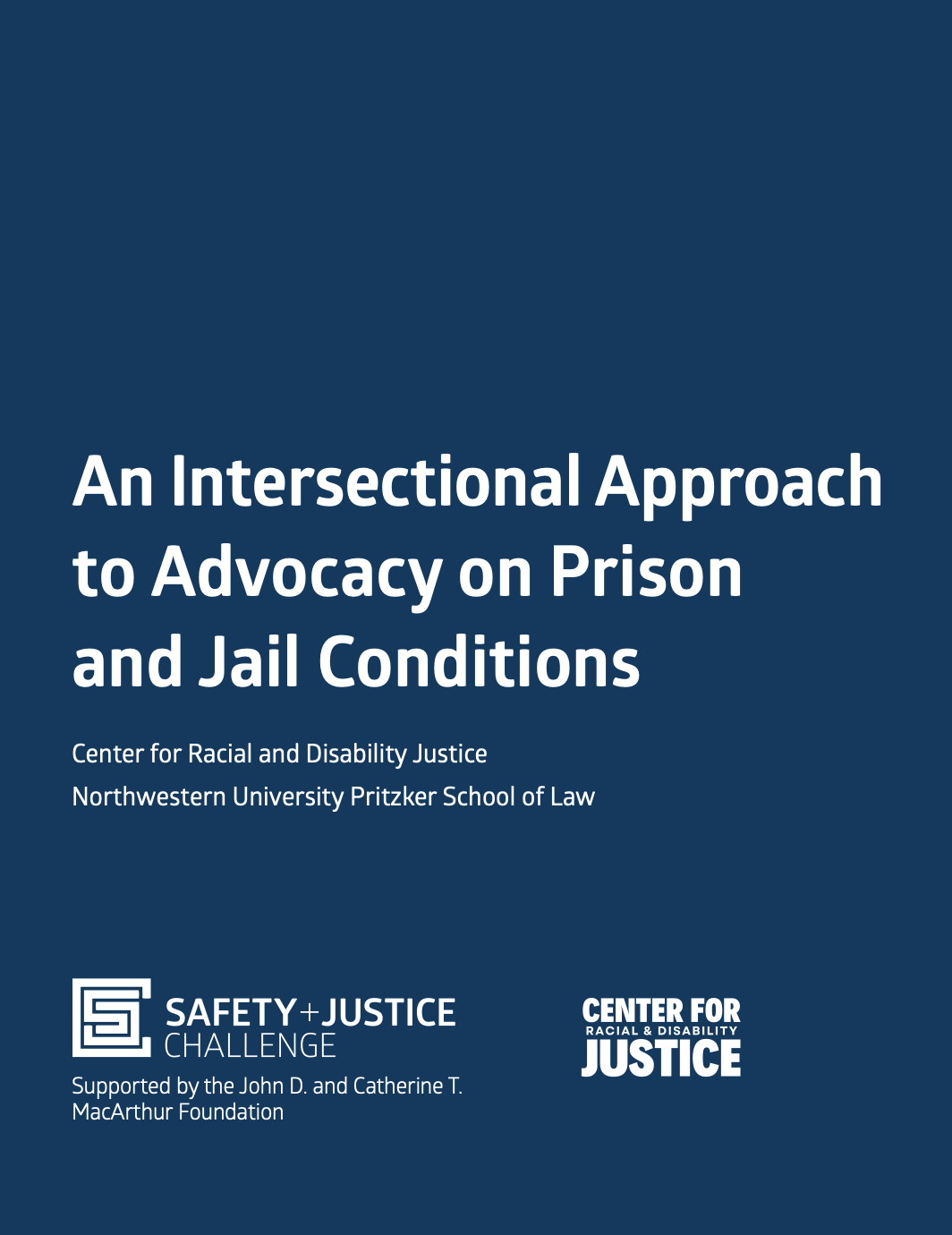Research Report
Disability LGBTQ Pretrial June 23, 2025
An Intersectional Approach to Advocacy on Prison and Jail Conditions
This paper examines the profound and disproportionate harms caused by mass incarceration in the U.S., with a focus on pretrial detention and the experiences of multiply marginalized individuals, particularly disabled people, people of color, LGBTQIA+ individuals, and those at the intersections of these identities. Pretrial detention impacts nearly a million people daily, many of whom are held without conviction, leading to severe physical, psychological, and social consequences. Although reform efforts have brought attention to the broader harms of incarceration, they often fail to account for the unique and compounded risks faced by people with intersecting marginalized identities. For example, incarcerated women, particularly women of color and survivors of sexual violence, are disproportionately affected by trauma and mental health conditions like PTSD and depression. Similarly, disabled people, especially those who are Black, Latinx, or Indigenous, are overrepresented in jails and face exacerbated health conditions due to poor carceral environments.
Using intersectionality theory as a framework, this paper highlights how various identities—race, gender, disability, and class—interact to intensify the harms of incarceration. It discusses the structural inequalities that contribute to the over-policing and over-incarceration of marginalized communities and explores how the conditions of confinement can both worsen and produce disabilities. Furthermore, the paper reviews current data on the demographics of incarcerated populations, highlighting the overrepresentation of people with disabilities, transgender individuals, and people of color. This report argues for an intersectional approach to criminal justice reform, advocating for systemic change that includes reducing reliance on pretrial detention, improving conditions within carceral institutions, expanding alternatives to incarceration, and addressing the unique needs of multiply marginalized populations. In addition, it offers key action steps such as improving data collection, promoting harm reduction strategies, increasing access to mental health services, and ending the use of solitary confinement.
The paper concludes that real reform requires a shift from punitive to restorative justice models, ensuring that advocacy efforts center the voices and lived experiences of those most affected by the criminal legal system. Through a comprehensive intersectional lens, this paper seeks to contribute to a broader conversation about decarceration and the abolition of pretrial detention, while addressing the structural inequities embedded in the U.S. criminal justice system.
